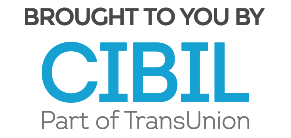Table of Contents
- Introduction to CIBIL
- Understanding CIBIL Score
- Importance of a Good CIBIL Score
- How to Check CIBIL Score
- Factors Impacting CIBIL Score
- Tips to Improve CIBIL Score
- Building Credit History for a Good CIBIL Score
- Maintaining a Good CIBIL Score
- Common Myths about CIBIL Score
- CIBIL Score for Businesses
- Summary and Importance of CIBIL Score
- Frequently Asked Questions (FAQs)
Introduction to CIBIL

CIBIL, or Credit Information Bureau (India) Limited, is a credit information company that plays a crucial role in the financial landscape of India. It provides credit reports and scores to individuals and businesses, aiding in informed financial decision-making. CIBIL acts as a repository of credit information, gathering data from various financial institutions, and condensing it into a comprehensive report.
Understanding CIBIL Score
A CIBIL Score is a three-digit numeric summary of an individual’s credit history. It ranges from 300 to 900, with a higher score indicating a better creditworthiness. Several components contribute to the calculation of a CIBIL Score, including the individual’s payment history, credit utilization ratio, length of credit history, credit mix, and recent credit inquiries.
Importance of a Good CIBIL Score
Maintaining a good CIBIL Score opens up a world of financial opportunities. Individuals with a higher CIBIL Score are more likely to access credit facilities easily, secure loans at lower interest rates, and negotiate better repayment terms. Additionally, a good CIBIL Score increases the chances of loan approvals, giving individuals an edge when applying for credit.
How to Check CIBIL Score
In order to check their CIBIL Score, individuals can follow a simple process. CIBIL Score check can be done through authorized credit information companies online. To begin, individuals need to provide their personal details, such as name, address, and identification information. Following this, they will undergo an authentication process to verify their identity, after which they will be able to access their CIBIL Score online.
Factors Impacting CIBIL Score
Various factors have an impact on an individual’s CIBIL Score. Payment history and the regularity of timely repayments are significant determinants of the score. Moreover, the credit utilization ratio, which measures the percentage of available credit being utilized, plays a crucial role. The length of credit history, the diversity of credit types in an individual’s portfolio, and recent credit inquiries also influence the CIBIL Score.
Tips to Improve CIBIL Score
Improving a CIBIL Score requires strategic financial management. Consistently paying bills and EMIs on time helps build a positive credit history. Reducing credit card utilization, maintaining a healthy credit mix, regularly reviewing credit reports, and disputing any errors found are also effective ways to enhance the CIBIL Score.
Building Credit History for a Good CIBIL Score
To build a strong credit history, individuals need to establish a credit history by initiating credit activities like obtaining a credit card or a small loan. A diverse credit portfolio demonstrates responsible credit usage. Regularly using credit cards and managing loans diligently contribute to a positive impact on the CIBIL Score.
Maintaining a Good CIBIL Score
Once a good CIBIL Score is achieved, it is essential to maintain it. Regular monitoring and review of credit reports help identify any potential issues or inaccuracies. Minimizing credit applications, controlling credit card spending, and avoiding default and late payments are key practices in maintaining a good CIBIL Score.
Common Myths about CIBIL Score
There are several misconceptions surrounding CIBIL Scores. Firstly, the CIBIL Score does not blacklist individuals; it merely reflects their creditworthiness based on their credit history. Secondly, the closure of credit card accounts may impact the CIBIL Score, but it does not cause immediate and severe damage. Lastly, multiple CIBIL Score checks within a short period of time do not harm an individual’s credit profile significantly.
CIBIL Score for Businesses
CIBIL Scores are also crucial for businesses, especially when it comes to securing loans. A good business CIBIL Score enhances the chances of loan approvals and better terms. Factors that influence a business’s CIBIL Score include the promptness of loan repayments, credit utilization, existing credit relationships, and the overall financial health of the business.
Summary and Importance of CIBIL Score
In summary, a good CIBIL Score holds immense importance in the financial realm. It acts as a gateway to credit facilities, lowers interest rates, and improves the possibilities of loan approvals. By maintaining a healthy credit history, individuals can unlock a plethora of financial opportunities and ensure their financial well-being.
Frequently Asked Questions (FAQs)
A. What is the minimum CIBIL Score required for loan approval?
- The minimum CIBIL Score required for loan approval varies across financial institutions. However, a score above 750 is generally considered favorable.
B. How long does it take to improve a CIBIL Score?
- The time required to improve a CIBIL Score depends on individual circumstances and financial habits. Consistent positive credit behavior over a period of time can lead to improvements.
C. Can CIBIL Score be improved after defaulting on a payment?
- While defaulting on a payment may have a negative impact on the CIBIL Score, consistent positive credit behavior after the default can gradually improve the score.
D. How often should I check my CIBIL Score?
- It is recommended to check the CIBIL Score at least once a year to keep track of any significant changes or errors.
E. Can I improve my CIBIL Score without credit activity?
- Engaging in credit activities is essential to build a credit history and improve the CIBIL Score. Without credit activity, there would be no data to calculate the score.
F. What should I do if I find errors in my credit report?
- If errors are found in the credit report, individuals should immediately notify the credit information company and provide supporting documentation to rectify the inaccuracies.
Follow us on our Instagram – @squarebox.in
Read more interesting articles and blog. – Blogs




